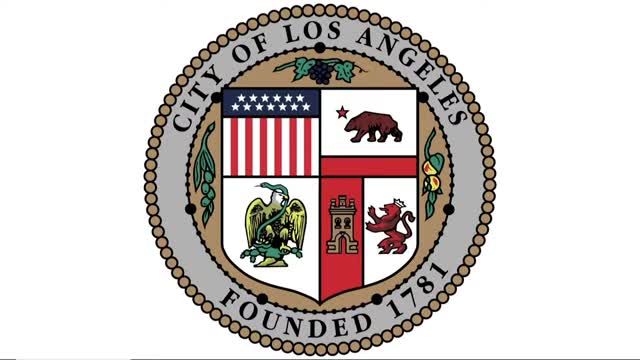City launches seven‑day task force after firefighters report widespread payroll errors tied to Workday rollout
Get AI-powered insights, summaries, and transcripts
Subscribe
Summary
City officials and firefighter union leaders told the City Personnel and Technology Committee on Thursday that payroll errors tied to the city’s recent Workday implementation have left many Los Angeles Fire Department employees with missing pay, incorrect leave balances and unpaid bonuses.
City officials and firefighter union leaders told the City Personnel and Technology Committee on Thursday that payroll errors tied to the city’s recent Workday implementation have left many Los Angeles Fire Department employees with missing pay, incorrect leave balances and unpaid bonuses.
Union speakers described missing dollars and duplicated or missing deductions for individual firefighters and said the problem has persisted for months. “Mi cheque le falta dinero,” said Frank Wigly, identified in the record as director of Bomberos Unidos de Los Ángeles, reporting that members were collectively shorted roughly $1,000 before Christmas in a single payroll cycle.
Committee members heard technical and program briefs from city staff, including Eduardo Magos of the city’s IT/automation team and the general manager of the General Technology Agency. Staff said the city has processed tens of thousands of support tickets since the Workday rollout: ticket volume peaked at about 3,000 daily when the system launched and has trended down to roughly 1,000 per month, they said. Staff also reported the project team has resolved “almost 15,000” tickets since the start of the deployment but that about 11,000 tickets remained open.
City staff and the committee described two distinct problems: (1) integration gaps between Workday and legacy scheduling/timekeeping systems used by firefighters, and (2) ongoing data‑quality and casework for retroactive pay and bonus adjustments. Staff said firefighters operate on unique schedules that were not fully captured by the standard Workday configuration, so many firefighter time records require manual handling or a separate integration.
The committee indicated three near‑term responses: immediate reallocation of existing staff to casework, an internal “tiger team” of controller, Fire Department, IT (ITEA), Personnel and Workday representatives to work daily on ticket closure, and a short‑term review of emergency leave policies. Committee leadership directed the tiger‑team to meet over the next seven days and return with a status report; the committee scheduled a special follow‑up meeting for Friday at 8:30 a.m. to review progress on ticket closures.
Staff outlined resource requests under discussion: personnel increases and a technology solution to stabilize payroll. Committee members referenced an approved request for 19 additional human‑resources positions and discussed technology funding figures during the meeting. At one point staff cited a $500,000 technology‑solution figure; later in the discussion a larger $1.5 million figure was referenced as a possible solution scale. Members did not adopt a final technology appropriation during the meeting; staff said funding and timelines would be part of the follow‑up work.
On personnel policy, a committee member moved to study expanding emergency paid‑time options for impacted employees — suggesting options such as 80 or 160 hours of paid leave for severely affected workers — and a colleague seconded the motion. The motion was taken up and the committee asked staff to evaluate options and impacts for the following meeting.
Speakers from the firefighter unions repeatedly requested immediate fixes for individual pay errors and urged the city to prioritize payment accuracy, saying firefighters who have worked extended incidents cannot afford missing wages or lost sick and vacation balances. City officials said they understood the urgency and emphasized both staffing and technical changes were needed to reduce the backlog and prevent recurring errors.
The committee framed its next steps as operational and time‑bound: temporary reassignments to casework, a seven‑day tiger‑team staffed by controller, personnel, IT/Workday and Fire Department leadership, and a special meeting to review progress. Staff committed to return with a clearer breakdown of open ticket types, outstanding monetary adjustments and recommended funding and staffing plans.
The committee did not adopt a final long‑term procurement or full funding package during the session; it instead directed the targeted, short‑term team to present recommendations and a ticket‑closure status at the scheduled special meeting.
